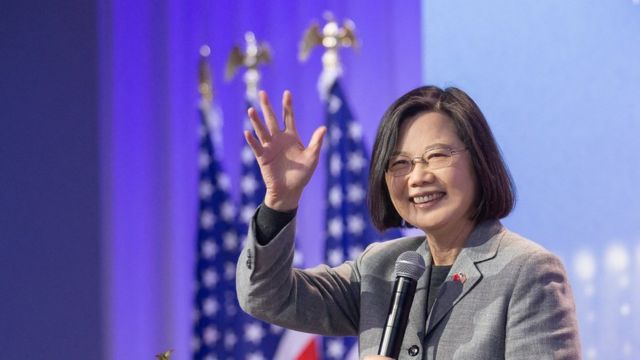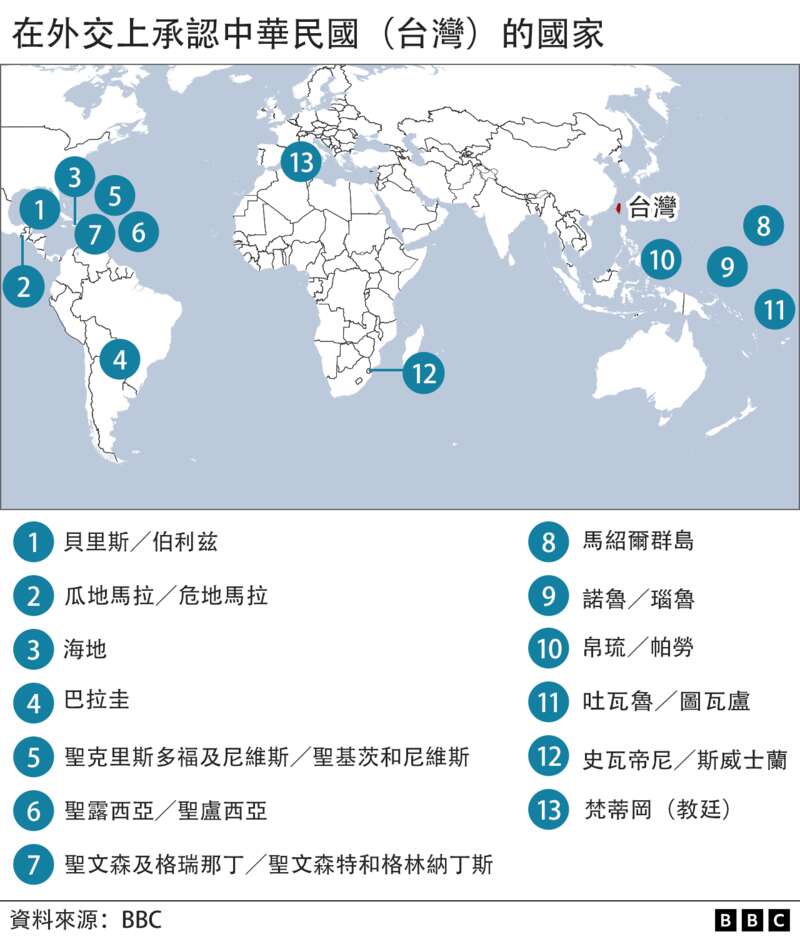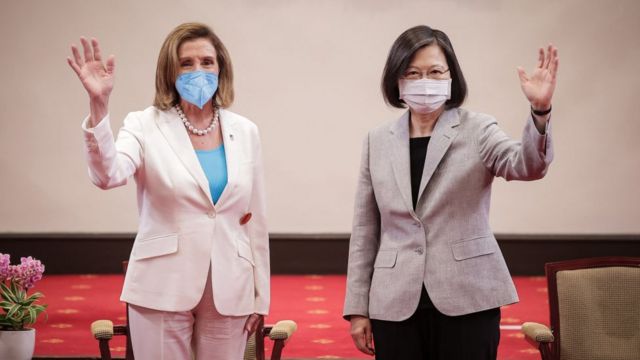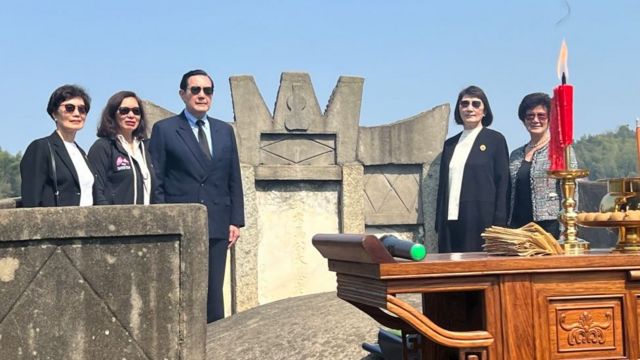風蕭蕭_Frank
以文會友蔡英文會晤麥卡錫:美國“愛殺”置台灣於險境?
BBC |2023-04-05
台灣正處於一場危險的三角戀中央。
上周,紐約歡迎台灣總統蔡英文到訪,現在她將要降落加利福尼亞州,而在這裏,她將受美國國會眾議院議長麥卡錫(Kevin McCarthy)款待,兩人將麵談。
這顯然不是巧合。美國敵視中國之情緒正在加深、加劇,而這正促使美方更公開地展示對台灣的支持,共和、民主兩黨彼此爭先恐後。
蔡英文稍早前在美國紐約接受一領袖獎項。
前眾議院議長佩洛西(Nancy Pelosi)去年夏天不顧一切到訪台北,縱然引來了北京的暴怒反應,可事出有因。
前美國在台協會台北辦事處處長司徒文教授(Prof William Stanton)說:“我個人很反對佩洛西訪問一事。”
“一位美國高級政治人物訪問寶島,猶如踹了中國一腳,卻沒得到什麽好處。後果還蠻嚇人的。”
中國導彈飛越台灣島,北京作出令人毛骨悚然的威脅。區內各國政府開始認真地討論中國入侵台灣的時間表。
即便如此,麥卡錫今年1月當選眾議院議長後,來自共和黨的他公開表明要以佩洛西為榜樣。但司徒文教授說,蔡總統認為這不是個好主意。
他說:“我想麥卡錫顯然想跟佩洛西齊名,但蔡英文說:‘謝了。我們改在加州喝茶如何?’”
也許蔡總統還不想再有一位美國領袖來訪,惹著爭議,但她同時得向中國大陸表明,要想切斷台北民選政府與其再華盛頓的最強盟友並不會得逞。
這就是加州會晤的由來。縱然中國警告美國,這是“在台灣問題上玩火”,麥卡錫先生也沒打算淡化它,並稱這是“跨黨派”會晤。
澳大利亞國立大學的政治學者宋文笛認為,所謂的“過境外交”對台灣來說非常重要。
中國近年相繼成功獵獲台灣的幾個正式盟友,使承認台北的政府數目削減至13個。
宋文笛說:“這些外訪符合台灣社會對國際認同的需要。缺乏國際承認下,這些其他替代宣示來表達支持,對台灣人一樣重要。”
去年8月,佩洛西(左)到訪台灣,北京強烈表達不滿。
另一邊廂,透過邀請蔡英文的前輩馬英九訪問大陸,中共也在發動其魅力攻勢。
馬先生開展了一場前所未有的五城之旅。雖然表麵上是回鄉祭祖,他也確實拜謁了華中的祖墳,但這還是一次政治旅程。這實際上是自1949年中華人民共和國成立以來,首次有台灣前總統來訪。
宋文笛說:“北京試圖軟化對台步調……爭取更多民心,同時避免在(2024年)總統競選期間出現台灣民族主義浪潮。”
他補充說,馬英九訪問大陸正好為此提供了必要的“政治掩護”。
上周他抵達南京之際,馬英九驚人地發表了一段政治味道濃重的演說:“兩岸人民同屬中華民族,都是炎黃子孫。”
司徒文教授說:“北京禮待馬英九,因為他代表讓步。他說‘我們同屬中華民族’,這是他跟北京都認同的,卻不是台灣人都認同的。”
馬英九的策略有其風險:一些民調顯示,超過60%台灣居民形容自己是台灣人,而非中國人。
宋文笛則指出,這其中也有甜頭在等待著。另一些民調顯示,超過一半台灣人認為現在跟中國大陸打仗的可能性增大,馬英九誌在說服台灣選民,隻有他的政黨——中國國民黨——能避免戰爭。
“這全是為了鞏固他作為台海兩岸橋梁的政治遺產,而在地方政治層麵,台灣正要開始總統競選,國民黨的論調是他們能跟中國談和平。”
然而,眼前的燙手山芋是台灣兩位“追求者”之間——華盛頓與北京——關係日趨惡化。美國智庫德國馬歇爾基金會亞洲主任葛來儀(Bonnie Glaser)認為,自中美1979年互相承認以來,兩國關係從未如此不堪。
她說:“他們(北京)都不接拜登總統或者是五角大樓(美國國防部)的電話,國會已宣告中國是個生存威脅(existential threat)。”
幾十年來,華盛頓如履薄冰地維持著一種現狀:承認但不公開支持北京“世上隻有一個中國政府”——在大陸的那個——的立場。自1979年以來,它跟那個政府而非台灣維持正是關係,但同時繼續當台北的堅實盟友,承諾協助台灣自衛。
令人生恐的是,中國如今相信美國想要改變現狀,而兩岸現狀得以讓台灣海峽保持和平40年。
葛來儀說:“拜登總統告訴習近平,他並無將台灣當成武器,他不支持台灣從中國分裂出去。”
但她指出,在台灣領導人進行備受爭議的官式訪問與會麵之際,這樣的保證意義不大。
在馬英九周遊中國大陸與蔡英文在加州喝茶之際,台灣還得盼望習近平能願意接電話。
Is Taiwan in danger of being loved to death?
Taiwan is caught in the middle of a dangerous love triangle.
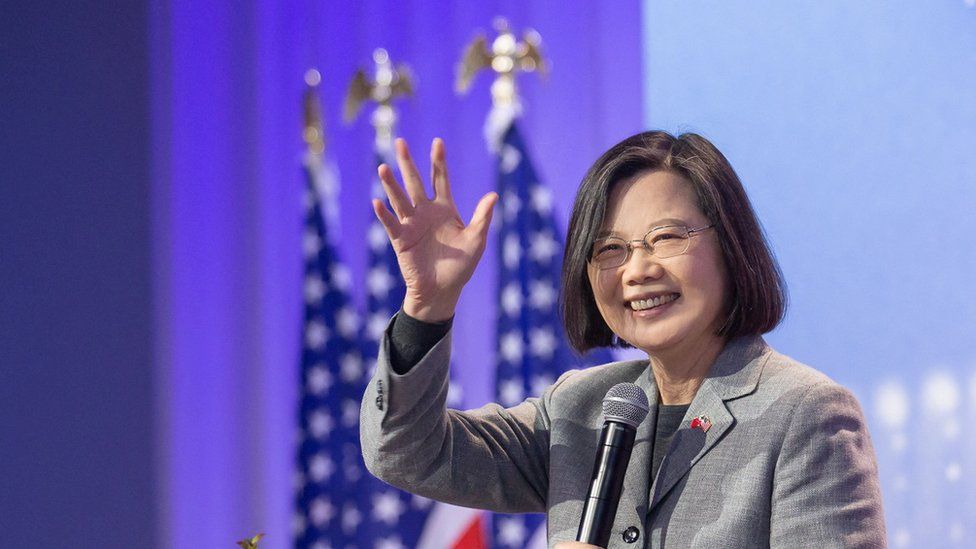 Taiwan President Tsai Ing-wen was in New York to receive a leadership award
Taiwan President Tsai Ing-wen was in New York to receive a leadership award
The timing is hardly a coincidence. In the US there is deep and growing hostility to China. And this is driving ever more open displays of support for Taiwan, with Democrats and Republicans competing to out-do each other.
It's a big reason former House Speaker Nancy Pelosi was so keen on landing in Taipei last summer, despite the fact that it set off a furious reaction from China. The self-governed island, which Beijing claims as part of its territory, is arguably the biggest flashpoint between the US and China.
"I was personally very opposed to the Pelosi visit," says professor William Stanton, former director of the American Institute in Taiwan. "For a high-level politician from the US to make a visit to the island was just poking China without much reward. And the consequences were quite scary."
Chinese missiles flew over the island as Beijing made blood-curdling threats. In capitals around the region governments began talking seriously about the timetable for a Chinese invasion of Taiwan.
Despite that, as soon as he was elected house speaker this January, Mr McCarthy, a Republican, declared his intention to follow Ms Pelosi's example. But President Tsai decided that was not a good idea, Prof Stanton says.
"I think it was quite clear that Kevin McCarthy wanted to pull a Pelosi," he says. "But Tsai Ing-wen said, 'no thank you, how about we have tea together in California instead'."
President Tsai may not want another contentious visit by a US leader to Taiwan just yet - but she also needs to show China that it will not succeed in shutting down contact between a democratically-elected government in Taipei and its most powerful ally in Washington.
And so, the meeting in California. Mr McCarthy has far from downplayed it, calling the meeting "bipartisan", despite China's warning that the US was "playing with fire on the Taiwan question".
This so-called "transit diplomacy" is crucial for Taiwan, says Wen-Ti Sung, a political scientist at the Australian National University.
Over the years, China has successfully poached many of Taiwan's formal allies, whittling down the number of governments that recognise Taipei to just 13.
"These international visits match Taiwan society's needs for international recognition," Mr Sung says. "When there's an absence of international recognition, these other proxy indicators of international support are important to [the] Taiwanese."
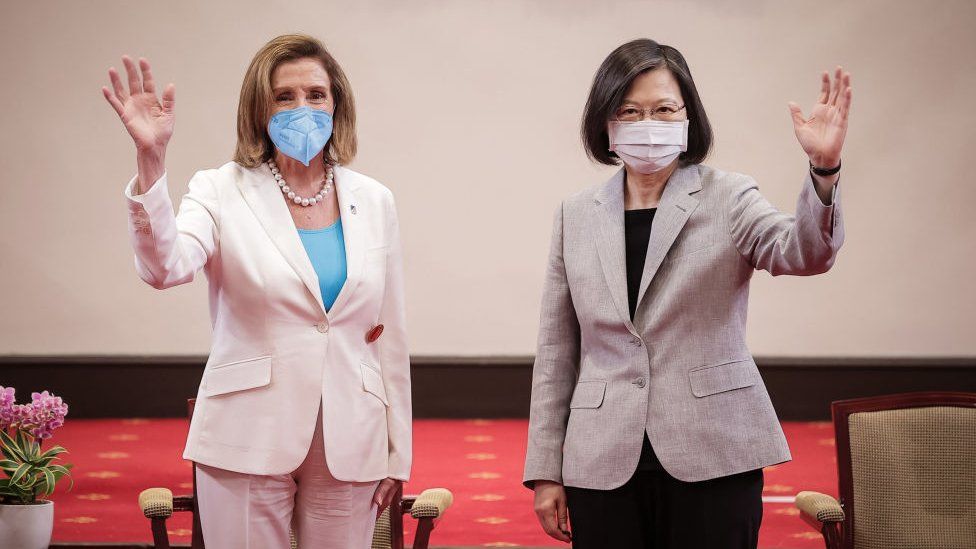 Former US House Speaker Nancy Pelosi's visit to Taiwan enraged Beijing
Former US House Speaker Nancy Pelosi's visit to Taiwan enraged Beijing
Meanwhile the Communist Party of China has mounted its own charm offensive, by inviting President Tsai's predecessor, Ma Ying-jeou, to tour the mainland.
Mr Ma went on an unprecedented five-city tour, ostensibly to pay homage to his ancestors. He has indeed visited their graves in central China. But the trip is also political. In fact, it's the first time a former president of Taiwan has ever been invited to the People's Republic of China since its founding in 1949.
"Beijing is trying to soften the tone towards Taiwan... winning more hearts and minds, and also avoiding a surge of Taiwanese nationalism during the [2024] presidential campaign," Mr Sung says.
Mr Ma's visit, he adds, provided the necessary "political cover" to do that.
When he landed in Nanjing last week, Mr Ma made a strikingly political speech: "The people on both sides of the Taiwan Strait are Chinese. And both are descendants of the Yan and Yellow Emperors."
"Beijing is being nice to Ma Ying-jeou because he represents capitulation," Prof Stanton says. "He says 'we are all Chinese'. That's something he and the Chinese agree on, but it's not something the Taiwanese agree on."
The risk in Mr Ma's strategy is that more than 60% of Taiwan's residents, according to surveys, describe themselves as Taiwanese, and not Chinese.
But there could also be a reward waiting in the wings. Surveys show that more than half of Taiwan believes war with China is now likely. And Mr Ma's aim is to convince Taiwanese voters that only his party - the Kuomintang (KMT) - can avoid that war, Mr Sung says.
"It's about cementing his legacy as the bridge between the two sides of the Taiwan Strait. And on a domestic political level Taiwan is starting its presidential campaign. The KMT argument is that we can bring peace with China."
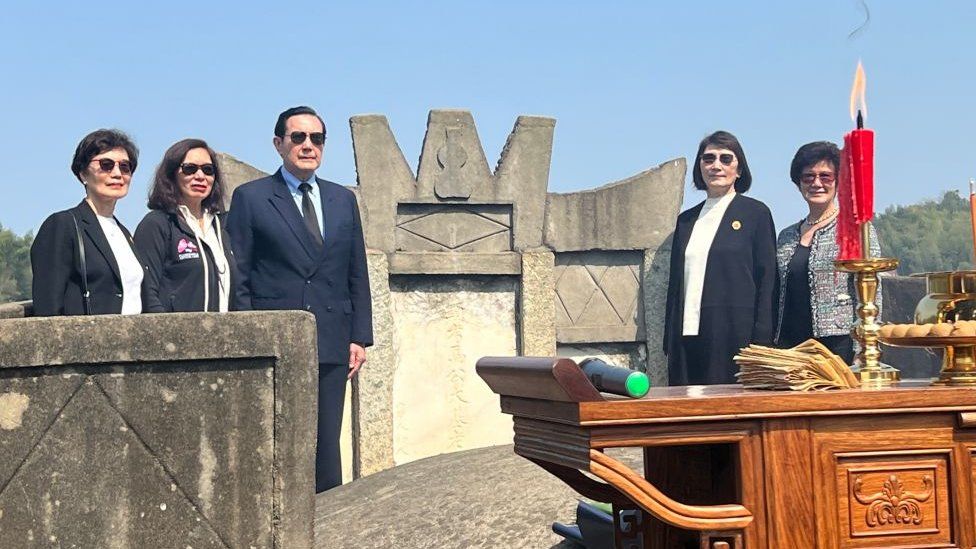
But the elephant in the room is the deteriorating relationship between Taiwan's two suitors - Washington and Beijing. That relationship is worse today than at any time since the US and China officially recognised each other in 1979, says Bonnie Glaser, head of the Asia programme at the German Marshall Fund of the United States.
"They [Beijing] are not taking calls from President Biden or the Pentagon. Congress has declared China an existential threat," she says.
For decades Washington has managed a rather delicate status quo, acknowledging, if not supporting, Beijing's position that there is only one Chinese government - the one on the mainland. It has maintained official ties with that government, and not Taiwan, since 1979. But it has also remained a steadfast ally to Taipei, guaranteeing to help the island defend itself.
But the fear is that China now believes that the US is set on changing the status quo which has helped keep the peace in the Taiwan Strait for the last 40-odd years.
"President Biden told Xi Jinping he is not using Taiwan as a weapon, that he does not support the separation of Taiwan from China," Ms Glaser says.
But such assurances are unlikely to amount to much in the wake of contentious state visits or official meetings with Taiwan's leaders, she adds.
So while Mr Ma tours China and Ms Tsai has tea in California, what Taiwan also needs is for Mr Xi to pick up the phone.




